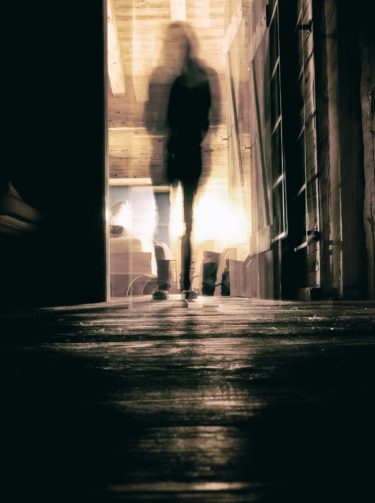Coming of age – a phrase that’s sure to elicit memories. For some, the freedom of university, for others the thrill of owning their first car. Although, if you were ever teenage, male, and Singaporean, you might instead be reminded of that time you were ferried off for mandatory military training on a haunted island.
Three-thousand recruits share the same fate each enlistment. For anywhere between two to five months, they’re sent to live in Pulau Tekong – a home reserved for pangolins, the occasional runaway elephant, ghosts, and military men. The latter, a category which the recruits are soon to join. Probably. If the stories are to be believed, some of the recruits may become ghosts, instead.
The haunting of the island is widely accepted as almost common knowledge at this point. In fact, as I sought advice online about dealing with the ghosts on Pulau Tekong, I could only find one respondent who claimed the ghosts didn’t exist. Their comment, on an internet forum discussing experiences on the island, was soon downvoted to oblivion.
*
“Don’t disturb the ghosts and they won’t disturb you,” seemed to be the most common response to tales of the hauntings. I figured it was a common saying passed around platoons to comfort the worrywarts. Did people find it comforting, though? I’d imagine, for an overthinker, this statement raises more questions than it answers.
“So, the ghosts are real, then? Do loud noises disturb them? How about flashlights? What if it’s dark and I need the washroom?”.
While I had questions, I found them met with a marked sense of indifference – it was as if the soldiers hadn’t had the slightest interest in thinking about any of this until now. Perhaps fear had cleansed them of any curiosity. In the 1950s, K. C. Montgomery observed that rats were less likely to explore a maze if they were electrically shocked. Maybe, for the soldiers, ghost stories were the equivalent of an electric shock – a long-running plot, devised by the army generals of old to keep them in line and out of trouble on Tekong.
Or, if that Scooby-Doo-esque theory sounds too far-fetched, maybe all the training simply drained the soldiers of worry.
*
“To be honest, ghost stories always sound scarier when you aren’t at the actual location,” I’m told by Adam (not his real name), a soldier who served time at Tekong back in 2005. “When I was there, I hardly had time to let my mind wander. Waking up at five-thirty in the morning, sleeping at nine-thirty at night – I was too busy adjusting to the regimental routine to think about scary stories.”

Despite a few perceived encounters – the sound of a screaming girl, mysterious whistling in the washroom – his curiosity remained unstirred. “I once woke up in the middle of the night and saw a figure in the corridor,” he recounts. “There were two windows separated by the door in between. I watched the figure walk past the first window and waited for it to emerge on the other side. I must’ve looked for at least twenty seconds. Nothing.”
Although this is one of the tamer encounters I came across, Adam’s reaction to it surprised me. He didn’t pass the experience off as his mind playing tricks on him – not even a thought given to possible explanations. “I didn’t think too much of it,” he says. “The general rule was ‘if you see something, pretend you didn’t and just ignore it.’”
I wondered if others too were aware of this so-called ‘general rule’. Apparently, it’s a common saying among the military men. “Act blur, live longer” is the concise version which tends to go around.
As we closed out our conversation, Adam recalled another incident which had taken place while he was on the island. “One night during the Hungry Ghost Festival, someone on the second floor claimed they had seen a ghost. In the morning, we found incense sticks being lit outside the bunk by our warrant officers [senior mentors]. They were older uncles so they did know a little about such things.”
Apparently, it’s not only the recruits – their superiors stay wary of the ghosts too. If fabled accounts are to be believed, there have been instances where ghosts have posed legitimate concerns, to an extent that priests had to be called in to solve the paranormal unrest.
*
Though I brushed past it the first time, I felt compelled to read up on the Hungry Ghost Festival when I heard it brought up again. In Buddhist and Taoist culture, it’s believed that for a month each year, the gates to hell open up. During this time, ghosts freely roam around Earth in search of food and entertainment.
“First day of the Hungry Ghost Festival – I was in platoon 3, F company,” says Redditor /u/thejmcla, a 2009 recruit. “That night, everyone slept soundly except for three of us. There was one person who kept hearing noises coming from inside his closet. Another who heard constant footsteps around the common table. For me, it was Chinese opera singing. First, it sounded like it was around the doorstep. Then suddenly, right next to my ear. I shuddered so bad that night but I kept my mouth shut the entire time.”
The incident continued over two nights before the recruit borrowed a Fu (a Chinese Talisman) from his friend. Though not an overly common sight, bibles, amulets, and other religious items do accompany the occasional recruit on their trip to Tekong. “I didn’t think it’d work but it did. Whatever you say about ghosts, I believe this one was real. Don’t play around in Tekong.”
Learning about the prevalence of ghosts in Chinese culture sheds a little more light on why their residence on the island seems to go unquestioned. Especially with the abundance of first-hand accounts floating around the internet, it feels safer to accept that the island is haunted than to scurry off on a quest for evidence – lest that offend the ghosts.
*
Singapore being a land of diversity, it doesn’t come as a surprise that Tekong plays host to creatures from Indonesian and Malay folklore as well. The Pontianak, for example, is one such visitor – a beautiful woman, draped in a blood-smeared white dress, who takes on a monstrous form as she preys on her victims. It’s said that she only appears on full-moon nights and that her arrival is announced by a floral fragrance. It’s also said that if a person has their eyes open when a Pontianak is nearby, she sucks their soul out of their head. That advice of ‘pretend you didn’t see anything’ grows more and more useful by the minute.

“I was on guard near a vehicle depot with a Malay friend of mine,” recounts /u/Exsper. “It was around two or three in the morning and we were doing sentry duty by the gates. We were about to fall asleep standing when, all of a sudden, a refreshing flowery scent filled the air. I had no idea what it meant but my friend became very nervous and quickly pulled me back to the brightly lit guard post. I got a bit scared when I noticed that the street lights had started flashing.”
It’s interesting to note that had the Malay friend not been around, this incident would never have made it onto an online thread of supernatural encounters – either because the recruit wouldn’t have drawn the connection, or because he wouldn’t have headed back to the guard post, which would have allowed the vengeful spirit to have its way with him.
“We were taking the bus back one night when the strong smell of female perfume took over,” /u/HoneyGreenTeh recalls a similar occurrence. “I thought it was only me but then the rest of the section smelled it too.” Nothing came of the incident, but again, it serves to illustrate the role which culture can play in framing certain occurrences as paranormal.
*
Before the island was taken over for military purposes, the villagers who resided in Tekong had cultural practices of their own. “I think all recruits know about the shrine at the ferry terminal,” comments /u/throwaway-goondoo in a year-old thread. “My supervisor would go there to pray every morning. When I asked why, he told me that the place once used to be a fruit farming village, and that was the shrine of the locals.”
The supervisor warned him that ‘bad things’ would happen if they stopped providing offerings. Apparently, the warning wasn’t heeded and once the supervisor retired, a soldier wound up paralyzed in his sleep.
In a more recent account, /u/meowletter tells me how the shrines on Tekong could be connected to the numerous sightings of ghost grandparents and their kids. “Grandparent and grandkid sightings are very common at Ladang [one of the training school’s on Tekong]. It’s only natural, to be honest. The place used to be a kampung [village].”
He goes on to mention an altar on a nearby island where people would make offerings, alluding that the ghosts began appearing when the shrine stopped being honoured. “Two of my mates doing sentry saw a grandma and a kid near the gate. They immediately signalled for assistance because they both felt sick.”

This was the first encounter I read about which involved multiple witnesses at the same sighting. Another commenter, /u/wocelot1003, followed up with a similar story. “During a navigation exercise, my section felt chills. We were pretty close to the checkpoint so we fanned out to search. Suddenly, I felt my hair standing up. I thought I was getting a heat stroke from lugging around the signal set. But then, I heard the rest of my section calling out for me. I thought they’d found the checkpoint, but once we all met up, two of the section members said that they had seen a grandfather and grandchild beside me and started calling out.”
From an outside perspective, this reads like a life-altering experience – an insight into another realm, parallel to the reality we’re familiar with. Nevertheless, the military men have no time to spare pondering the mysteries of the universe. They can’t afford to lose sleep when the next day might see them marching the length of a marathon. “Everyone moved on. I think life then was too busy to think about these things.”
*
Though humans are curious beings by nature, in fulfilling curiosities, we first consider the trade-offs. As seems to be the consensus here, the additional knowledge isn’t always worth the effort. Sometimes, you pick a side and get on with life.
I asked a recruit if Pulau Tekong was haunted and he replied, “If you believe it’s haunted, then it is.”
That seems to be the honest and absolute truth. It doesn’t matter whether ghosts actually reside on the island – as long as people believe that they do, Tekong will remain haunted. Even if the sightings are hallucinations, the screams are from kittens, and the flowery scent is just a result of… flowers – as long as people attribute these anecdotes to the supernatural, Tekong will remain haunted.
Maybe it’s a misguided conclusion, borne of ignorance, but maybe it’s also for the best. What would the military men stand to gain if they knew, for certain, that ghosts didn’t exist? Freedom from their worries? Peace of mind? They learn to find that anyways; some through prayers, some through talismans, and others through a busy schedule.
While the sergeants teach recruits about discipline and orderliness, the ghosts teach them about fortitude – about dealing with unknown adversity. These are teenagers who set foot on the island fearing the worst, and over the time spent there, develop a changed perspective. It’s one which makes them wary of their own ability to adapt and survive; one which prepares them for a world riddled with uncertainty.
When they finally leave Tekong, the recruits take away far more than just the basic military training which they signed up for. They take away a sense of personal growth – the kind which could perhaps only be found on a haunted island. A coming of age.
Personal recounts and anecdotes were sourced from the following forum threads:



